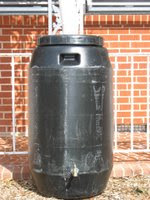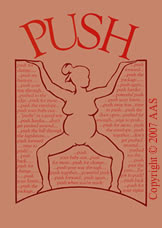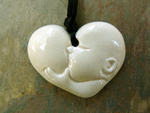Dr Amy writes on www.homebirthdebate.blogspot:
"It is interesting to me that the natural childbirth community would put so much stock in a study that depended on birth certificate data when the primary objection to the Pang study was that it depended on birth certificate data which might not be reliable."
Safe Baby Partners:
Question: How can we as a society hold medical profession accountable for conducting and providing research that PROVES the safety of a drug or intervention BEFORE using it on it laboring and birthing women and babies? The burden of proof should be theirs, not women, and not natural birth supporters whose real life experiences are the proof for them.
In response to the quote above, gathering birth information from public records, not the mother and baby, is standard protocol in all areas of research of human health and pathology. It surprises me too. In the state in which I live the state director of the bureau of statistics told me there are serious discrepancies in birth certificate data -- so that the epidemiological study I wanted to do was pretty impossible. How convenient. I even found glaring omissions in hospital records of my daughter’s. ( ie., it did not say she was induced with cytotec and I/we had epidural anesthesia.)
I am increasingly more amazed -- or is it dismayed -- at the omission of the experience of labor and birth in literally every area of human study. Not even addictions studies looks at the 90% rate of drug use in labor and birth. The Institute of Educational Services of the US Department of Education has a national study "Early Childhood Longitudinal Study" that follows a birth cohort of over 10,000 children born in 2001. The study relies upon birth certificate data. The mothers of the birth cohort are not even interviewed until their baby is nine months of age and the painfully long questionnaire that delves too deeply into privacy of every topic has NO questions about labor and birth. It relies upon birth certificate data even when the mother is right there!?! The omission of this is mind-boggling.
From the website, “The Early Childhood Longitudinal Study (ECLS) Program provides national data on children's status at birth and at various points thereafter.” But doesn't even gather information about the birth. How is the whole community of "scientific researchers" so oblivious to the primary experience of life? Even when looking at the health of the person from birth?!?!THE moment and process of leaving the symbiotic safety of the mother's womb and re-connecting with her at the moment that every body system "comes online" on it's own. And no one asks the mother? And, if she tells it, her "anecdotal story", her experience is diminished as not scientifically shown to be correct??
There is no research to disprove a mother's sensate and emotional experience of birth, nor is there research to disprove the growing study of the lifelong effects of the experience of birth. No one, ESPECIALLY the medical profession who is involved in birth with their means of extrication to save a life, looks at the consequences. The burden of PROOF should be on obstetrics to PROVE something is safe before doing it routinely on women and babies and then purporting it to be safe so it is finally "accepted" as normal and scientific.
The field of obstetrics is hand-in-hand with fields of psychology, so that such studies as this Early Childhood Study are funded by government money WHILE they fund "the war on drugs" whose message reaches the youngest of children. "Just say no!" Why would they if they were born "under the influence?" Medical and the example study here both focus on prenatal and postnatal but exclude birth. They both look at the role of the woman and the family in creating the problems and needs of the child --- psychology and medicine are notorious for "blaming mothers" for every issue of humankind. And, neither look at labor and birth and lack of rights and power a woman has during the most important day of her child's life. Like in obstetrics, the questionnaire asks such in depth questions as "Who paid for your prenatal care?" and how many times per trimester the mother had prenatal care, how much she smoked, and then begins a long series of questions about NICU.
LABOR and BIRTH, including the history of drugs, inducing, and other interventions as well as the mother's physical and emotional experiences are not included in the questionnaire (http://nces.ed.gov/ecls/pdf/Birth/parent_nine.pdf, page 69) because there is so little regard for the safety and well-being of the human newborn.
Beware, Be aware. Be alarmed. Critical decisions from this amazing national project (as with all of the research in every field of study of human behavior and health) will be made about children's needs within the family and in parenting, and in the school settings. From the site http://nces.ed.gov/ecls/: "From a national perspective, there is little information about young children's development, health, early care and education from birth through kindergarten entry. This research is in response to an increased public awareness of the importance of children's early experiences to their later school success."
How much government money is spent on this study and in EVERY field of medicine, psychology, education, and addictions to research the human condition and needs and BIRTH is excluded!?
"The ECLS program has been designed to include two overlapping cohorts: a Birth Cohort and a Kindergarten Cohort. The birth cohort follows a sample of children from birth through kindergarten entry. The kindergarten cohort follows a sample of children from kindergarten through the eighth grade. children's transitions to nonparental care, early education programs, and school; and children's experiences and growth through the eighth grade. ECLS also provides data to test hypotheses about the contributions of a wide range of family, school, community and individual variables on children's development, early learning, and performance in school."
And the experience of labor and birth is omitted, and data from birth certificates is used to represent the most important, defining event in the human's life.
Time to demand accountibility from researchers of all fields.
The Other Side of the Glass
Part One was officially released June 2013 in digital distribution format.
To purchase to to www.theothersideoftheglass.com
If you were a donor and want to download your copy send an email to theothersideoftheglassfilm@gmail.com.
The trailer
Subscribe to:
Post Comments (Atom)
"Soft is the heart of a child. Do not harden it."
A public awareness reminder that things that happen behind the scenes, out of our sight, aren't always as rosy as we might think them to be. Perhaps its a restaurant cook who accidentally drops your burger
on the floor before placing it on the bun and serving it to you. Here it's an overworked apathetic (pathetic) nurse giving my newborn daughter her first bath.
Please comment and rate this video, so as to insure that it is viewed as widely as possible, perhaps to prevent other such abuse. -- The mother who posted this YouTube. How NOT to wash a baby on YouTube
Are you going to try to tell me that "babies don't remember?" There is no difference to this baby's experience and the imprinting of her nervous system/brain and one that is held and cleaned by the mother or father either at the hospital or at home?
By the way, this is probably NOT the baby's first bath. The nurse is ungloved. Medical staff protocol is that they can't handle a baby ungloved until is has been bathed (scrubbed if you've seen it) because the baby is a BIO-HAZARD -- for them. Never mind that the bio-hazard IS the baby's first line of defense against hospital germs.
Missouri Senator Louden Speaks
Finally, A Birth Film for Fathers
Part One of the "The Other Side of the Glass: Finally, A Birth Film for and about Men" was released June, 2013.
Through presentation of the current research and stories of fathers, the routine use of interventions are questioned. How we protect and support the physiological need of the human newborn attachment sequence is the foundation for creating safe birth wherever birth happens.
Based on knowing that babies are sentient beings and the experience of birth is remembered in the body, mind, and soul, fathers are asked to research for themselves what is best for their partner and baby and to prepare to protect their baby.
The film is designed for midwives, doulas, and couples, particularly fathers to work with their caregivers. Doctors and nurses in the medical environment are asked to "be kind" to the laboring, birthing baby, and newborn. They are called to be accountable for doing what science has been so clear about for decades. The mother-baby relationship is core for life. Doctors and nurses and hospital caregivers and administrators are asked to create protocols that protect the mother-baby relationship.
Men are asked to join together to address the vagaries of the medical system that harm their partner, baby and self in the process of the most defining moments of their lives. Men are asked to begin to challenge the system BEFORE they even conceive babies as there is no way to be assured of being able to protect his loved ones once they are in the medical machine, the war zone, on the conveyor belt -- some of the ways that men describe their journey into fatherhood in the medicine culture.
Donors can email theothersideoftheglassfilm@gmail.com to get a digital copy.
Through presentation of the current research and stories of fathers, the routine use of interventions are questioned. How we protect and support the physiological need of the human newborn attachment sequence is the foundation for creating safe birth wherever birth happens.
Based on knowing that babies are sentient beings and the experience of birth is remembered in the body, mind, and soul, fathers are asked to research for themselves what is best for their partner and baby and to prepare to protect their baby.
The film is designed for midwives, doulas, and couples, particularly fathers to work with their caregivers. Doctors and nurses in the medical environment are asked to "be kind" to the laboring, birthing baby, and newborn. They are called to be accountable for doing what science has been so clear about for decades. The mother-baby relationship is core for life. Doctors and nurses and hospital caregivers and administrators are asked to create protocols that protect the mother-baby relationship.
Men are asked to join together to address the vagaries of the medical system that harm their partner, baby and self in the process of the most defining moments of their lives. Men are asked to begin to challenge the system BEFORE they even conceive babies as there is no way to be assured of being able to protect his loved ones once they are in the medical machine, the war zone, on the conveyor belt -- some of the ways that men describe their journey into fatherhood in the medicine culture.
Donors can email theothersideoftheglassfilm@gmail.com to get a digital copy.
Buy the film at www.theothersideoftheglass.com.
The film focuses on the male baby, his journey from the womb to the world and reveals healing and integrating the mother, father, and baby's wounded birth experience. The film is about the restoring of our families, society, and world through birthing loved, protected, and nurtured males (and females, of course). It's about empowering males to support the females to birth humanity safely, lovingly, and consciously.
Finally, a birth film for fathers.
The film focuses on the male baby, his journey from the womb to the world and reveals healing and integrating the mother, father, and baby's wounded birth experience. The film is about the restoring of our families, society, and world through birthing loved, protected, and nurtured males (and females, of course). It's about empowering males to support the females to birth humanity safely, lovingly, and consciously.
Finally, a birth film for fathers.
What People Are Saying About the FIlm
Well, I finally had a chance to check out the trailer and .. wow! It's nice that they're acknowledging the father has more than just cursory rights (of course mom's rights are rarely acknowledged either) and it's great that they're bringing out the impact of the experience on the newborn, but I'm really impressed that they're not shying away from the political side.
They are rightly calling what happens in every American maternity unit, every day, by its rightful name - abuse. Abuse of the newborn, abuse of the parents and their rights, abuse of the supposedly sacrosanct ethical principal of patient autonomy and the medico-legal doctrine of informed consent, which has been long ago discarded in all but name. I love it!
In the immortal words of the "shrub", "bring it on!" This film needs to be shown and if I can help facilitate or promote it, let me know.
Father in Asheville, NC
Thanks for sharing this. It was very touching to me. I thought of my brother-in-law standing on the other side of the glass when my sister had to have a C-section with her first child because the doctor was missing his golf date. I'll never forget his pacing back and forth and my realizing that he was already a father, even though he hadn't been allowed to be with his son yet.
Margaret, Columbia, MO
They are rightly calling what happens in every American maternity unit, every day, by its rightful name - abuse. Abuse of the newborn, abuse of the parents and their rights, abuse of the supposedly sacrosanct ethical principal of patient autonomy and the medico-legal doctrine of informed consent, which has been long ago discarded in all but name. I love it!
In the immortal words of the "shrub", "bring it on!" This film needs to be shown and if I can help facilitate or promote it, let me know.
Father in Asheville, NC
OMG'ess, I just saw the trailer and am in tears. This is so needed. I watch over and over and over as fathers get swallowed in the fear of hospitals birth practice. I need a tool like this to help fathers see how very vital it is for them to protect their partner and baby. I am torn apart every time I see a father stand back and chew his knuckle while his wife is essentially assaulted or his baby is left to lie there screaming.
Please send me more info!!!!
Carrie Hankins
CD(DONA), CCCE, Aspiring Midwife
720-936-3609
Thanks for sharing this. It was very touching to me. I thought of my brother-in-law standing on the other side of the glass when my sister had to have a C-section with her first child because the doctor was missing his golf date. I'll never forget his pacing back and forth and my realizing that he was already a father, even though he hadn't been allowed to be with his son yet.
Margaret, Columbia, MO
In case you don't find me here
Soon, I'll be back to heavy-duty editing and it will be quiet here again. I keep thinking this blog is winding down, and then it revives. It is so important to me.
I wish I'd kept a blog of my journey with this film this past 10 months. It's been amazing.
I have a new blog address for the film, and will keep a journal of simple reporting of the journey for the rest of the film.
www.theothersideoftheglassthefilm.blogspot.com
I'll be heading east this week to meet with a group of men. I plan to post pictures and clips on the film blog.
I'll keep up here when I can -- when I learn something juicy, outrageous, or inspiring related to making birth safer for the birthing baby.
I wish I'd kept a blog of my journey with this film this past 10 months. It's been amazing.
I have a new blog address for the film, and will keep a journal of simple reporting of the journey for the rest of the film.
www.theothersideoftheglassthefilm.blogspot.com
I'll be heading east this week to meet with a group of men. I plan to post pictures and clips on the film blog.
I'll keep up here when I can -- when I learn something juicy, outrageous, or inspiring related to making birth safer for the birthing baby.
Review of the film
Most of us were born surrounded by people who had no clue about how aware and feeling we were. This trailer triggers a lot of emotions for people if they have not considered the baby's needs and were not considered as a baby. Most of us born in the US were not. The final film will include detailed and profound information about the science-based, cutting-edge therapies for healing birth trauma.
The full film will have the interviews of a wider spectrum of professionals and fathers, and will include a third birth, at home, where the caregivers do a necessary intervention, suctioning, while being conscious of the baby.
The final version will feature OBs, RNs, CNMs, LM, CPM, Doulas, childbirth educators, pre and perinatal psychologists and trauma healing therapists, physiologists, neurologists, speech therapists and lots and lots of fathers -- will hopefully be done in early 2009.
The final version will include the science needed to advocated for delayed cord clamping, and the science that shows when a baby needs to be suctioned and addresses other interventions. Experts in conscious parenting will teach how to be present with a sentient newborn in a conscious, gentle way -- especially when administering life-saving techniques.
The goal is to keep the baby in the mother's arms so that the baby gets all of his or her placental blood and to avoid unnecessary, violating, and abusive touch and interactions. When we do that, whether at home or hospital, with doctor or midwife, the birth is safe for the father. The "trick" for birthing men and women is how to make it happen in the hospital.
The full film will have the interviews of a wider spectrum of professionals and fathers, and will include a third birth, at home, where the caregivers do a necessary intervention, suctioning, while being conscious of the baby.
The final version will feature OBs, RNs, CNMs, LM, CPM, Doulas, childbirth educators, pre and perinatal psychologists and trauma healing therapists, physiologists, neurologists, speech therapists and lots and lots of fathers -- will hopefully be done in early 2009.
The final version will include the science needed to advocated for delayed cord clamping, and the science that shows when a baby needs to be suctioned and addresses other interventions. Experts in conscious parenting will teach how to be present with a sentient newborn in a conscious, gentle way -- especially when administering life-saving techniques.
The goal is to keep the baby in the mother's arms so that the baby gets all of his or her placental blood and to avoid unnecessary, violating, and abusive touch and interactions. When we do that, whether at home or hospital, with doctor or midwife, the birth is safe for the father. The "trick" for birthing men and women is how to make it happen in the hospital.








No comments:
Post a Comment